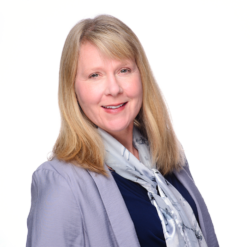Primary Care for Alzheimer’s Disease
The most common type of dementia is Alzheimer’s disease and about 1 in 9 adults over aged 65 have the condition. The greatest risk factor for developing Alzheimer’s is advancing age. This means that the older a person is, the more likely it is to occur. As an illustration, from 2022 Alzheimer’s Disease Facts and Figures, here are percentages of those affected:
- 5% of people aged 65-74
- 13.1% of people aged 75-84
- 33.2% of people aged 85 and older
Researchers project two significant population events by 2050. Both will impact individuals living with dementia and the care they receive.
- Approximately one in five people will be 65 years old or older. This is due to advances in medicine, improving socioeconomic factors and the maturing of the large baby boom cohort (those born 1946-64).
- About 7 million people aged 85 and older are projected to have Alzheimer’s dementia, accounting for about half of all older adults with this condition. This means too that millions of people serving as caregivers will require guidance and support.
The readiness of primary care
Primary care providers (PCPs) may be family doctors, internal medicine physicians, nurse practitioners or physician assistants. Active management -meaning regular communication, visits and attendance to ongoing issues – results in a better quality of life for patients and caregivers. Studies reflect that PCPs are very aware of the increasing age of their patient panels and because of it, feel a duty to stay current with changes in dementia care.
A tough reality though is that a 2019 survey by the American Alzheimer’s Association revealed that only half of the 1000 physicians polled believed they were prepared to meet the practice demands associated with such an increase in older Americans with dementia. Related issues are not only longer visit times but also the many health care updates competing for practitioners’ time. Also, more than half of PCPs stated there were not enough specialists to assist. And they are correct. The U.S. Department of Health and Human Services estimates a deficit of almost 27,000 geriatricians nationwide by 2025.
Specialists
PCPs look to the following experts to not only co-manage the progression of Alzheimer’s disease but also to offer vital support and services to caregivers and families.
Geriatricians specialize in the care of elders and are trained to consider the aging body and mind’s distinct needs regarding medication, illness and injury.
Neurologists focus on the diagnosis and treatment of nervous system disorders like dementia.
Neuropsychologists are clinicians who evaluate and characterize people’s responses to brain injury or disease.
Other health professionals who specialize in geriatrics but remain in short supply include nurse practitioners, pharmacists and social workers.
Building a relationship
Foundational in the giving and receiving of care for Alzheimer’s disease is for all parties to actively invest in a relationship. How can each side accomplish this? It starts by having realistic expectations of one another.
If Alzheimer’s disease is known, it is important for those affected by the condition to keep the PCP informed of any changes in demographics or health status. This includes moving, tobacco and alcohol use, falls, medication starts or stops, plans for extended travel and any urgent/emergency care visits or hospital stays.
Likewise, it is reasonable for the patient and family to have the following expectations of the PCP’s office:
- Up-to-date screening to measure the progression of cognitive impairment
- Effective management of related symptoms/behaviors
- Resources for the training and support of family and caregivers
- Coordination of care including referrals to available specialists
- Treatment information and time to discuss best choices for the individual
- Health care directive introduction and guidance
Medical providers are held to standards of care including mandatory continuing education. An example of this training would be the latest research on Alzheimer’s prevention. Holding up their professional end of the relationship means investing in such learning opportunities and sharing new knowledge with patients.
Interestingly though, almost half of PCPs from the above survey shared that the most valuable education regarding dementia came from their interactions with patients and families. This points to the true interdependence between the individual affected, the caregiver(s) and the chosen primary clinician.
Preparing for a visit
Be proactive but keep expectations simple! A change in routine and travel outside the home can make for a long day, so don’t try and do more than get to the office and back. Do your best to confirm transportation; sometimes getting to the clinic is the biggest hurdle.
Gather needed information before the day of the appointment. You may have homework from the last meeting and being prepared will make things go more smoothly on clinic day.
Examples of what to bring:
- Personal notes on changes in memory or behavior
- Dates and times of PRN or “as needed” medications
- Record of weights and food preferences
- Lab results
- A list of questions and concerns to be addressed at the visit
During the visit
Stay present to feelings that arise and notice any stress points. Medical offices can be full of distractions and chaos. Let the staff know if you have certain time restraints. Ask about:
- names and phone numbers of important contacts and
- whether your provider ever makes house calls.
Waiting can result in anxiety, restlessness or sleepiness. Stay calm and try to be flexible if circumstances change; it is ok to transition to a phone or video appointment or reschedule altogether. Remember that you don’t have to stay for labs or other testing if asked, it can be done at a future time.
After the visit
Review the experience in your mind, on paper or with a trusted person.
- Did you get what you needed?
- Is the follow-up plan clear?
- How do you feel about going back?
These questions will guide your next steps and encourage discussion as you continue in your relationship with primary care.
Sources
Alzheimer’s Association. 2022 Alzheimer’s Disease Facts and Figures.
Alzheimer’s & Dementia. Special Report on Primary Care Physicians and Alzheimer’s Care in America.
U.S. Dept of Health and Human Services. National and Regional Projections of Supply and Demand for Geriatricians: 2013-2025.

Dow Stick is a freelance health writer and nurse practitioner in Western North Carolina. She earned a Bachelor of Science degree in Biology from the University of Mary Washington and a Master of Science degree in Nursing from East Tennessee State University. Her experience as an advanced practice nurse includes adult primary care, hospice and palliative care, chronic disease management, and addiction medicine. Her interests are in the health and wellness of older adults as well as the advocacy and support of those living with dementia, especially her own 95-year-old grandmother.

